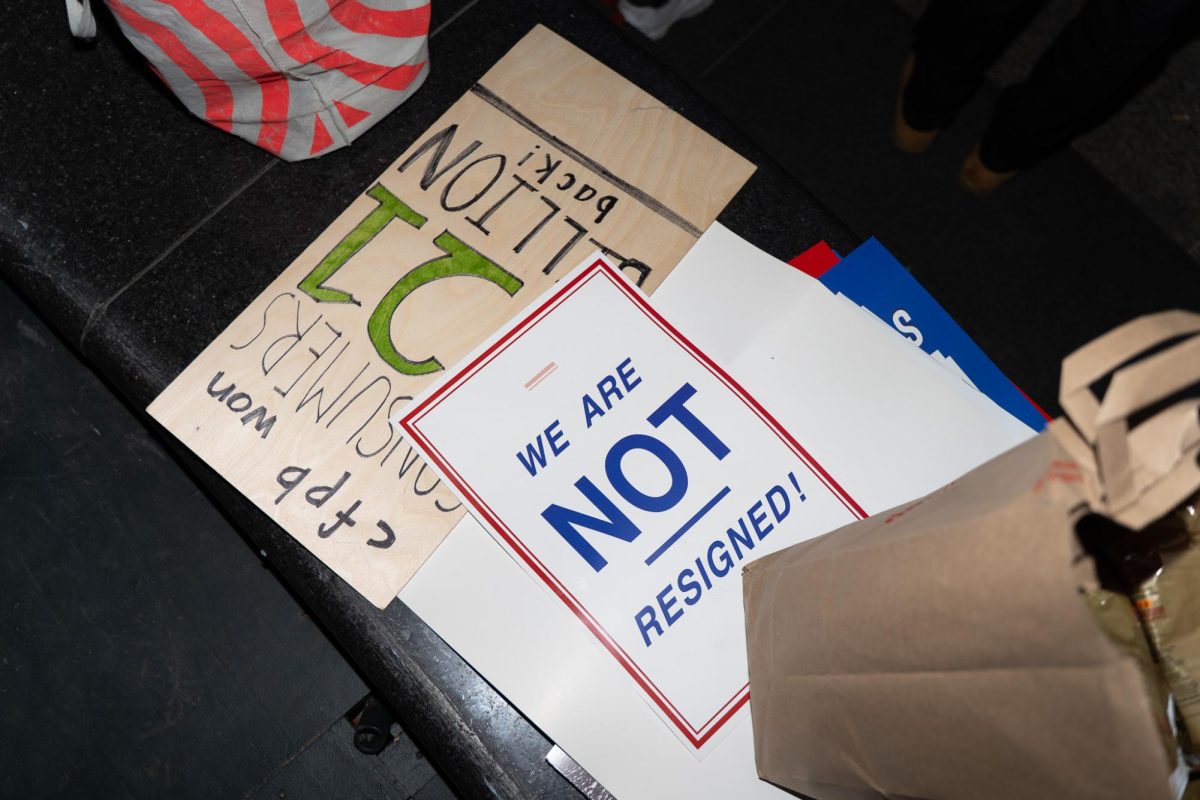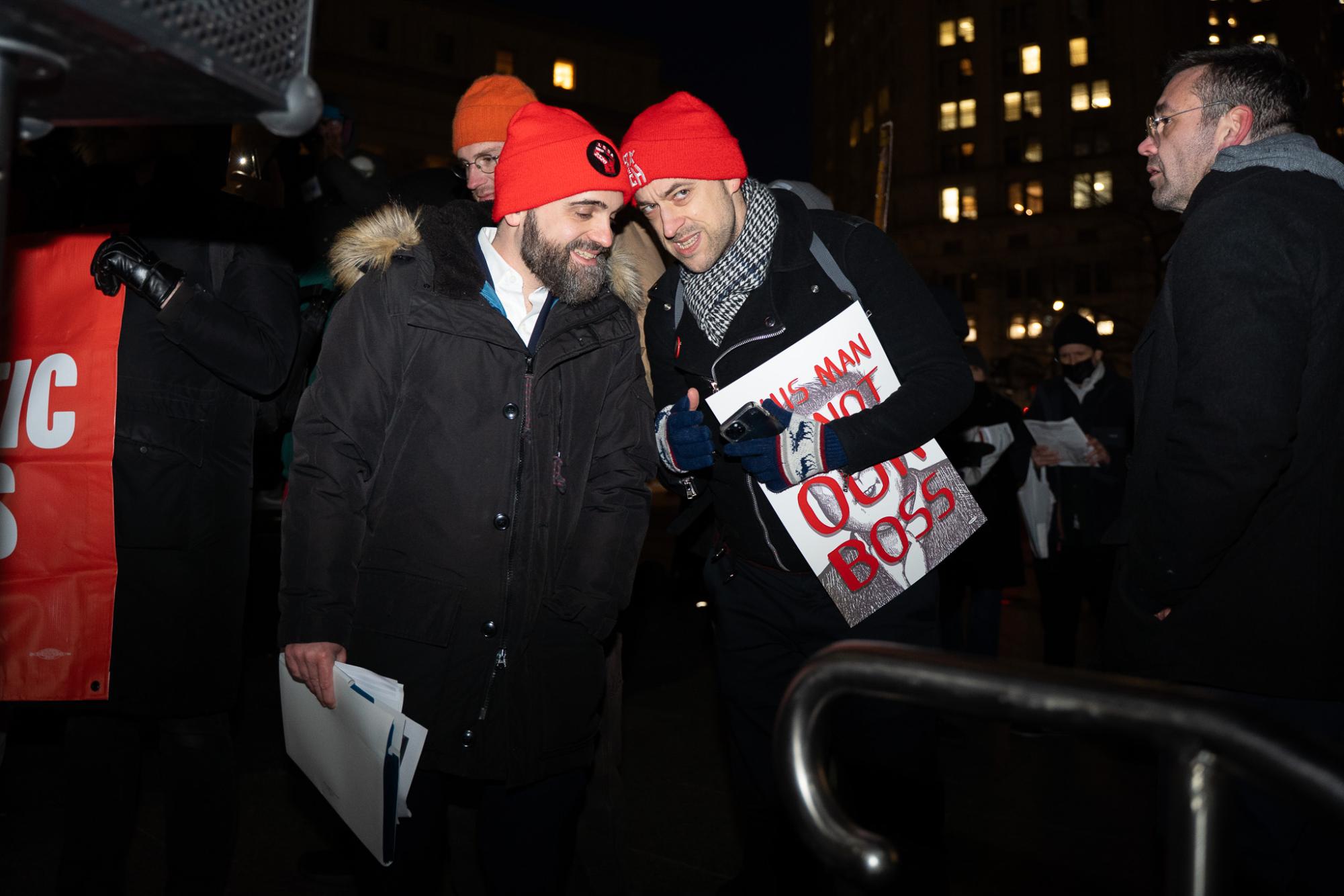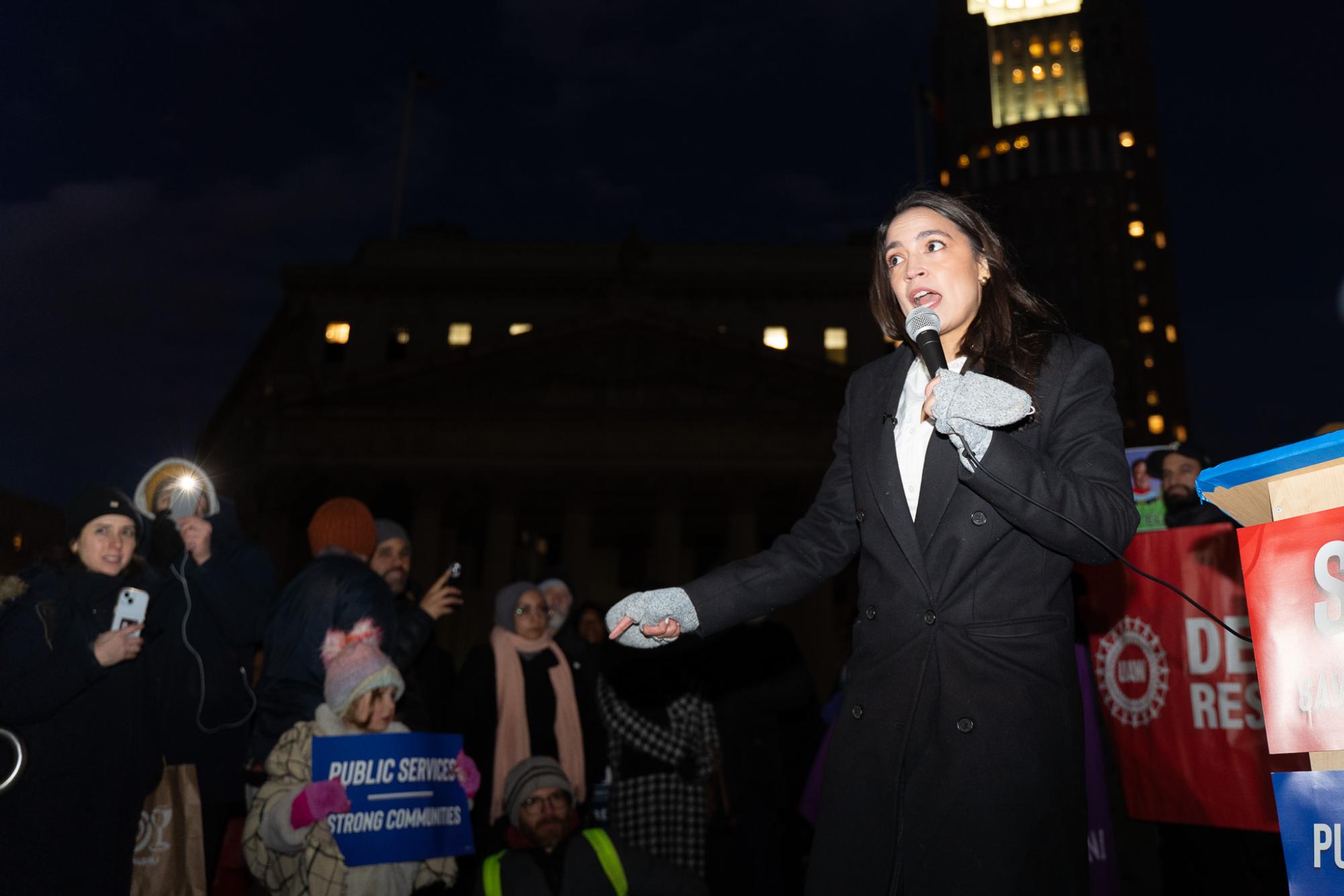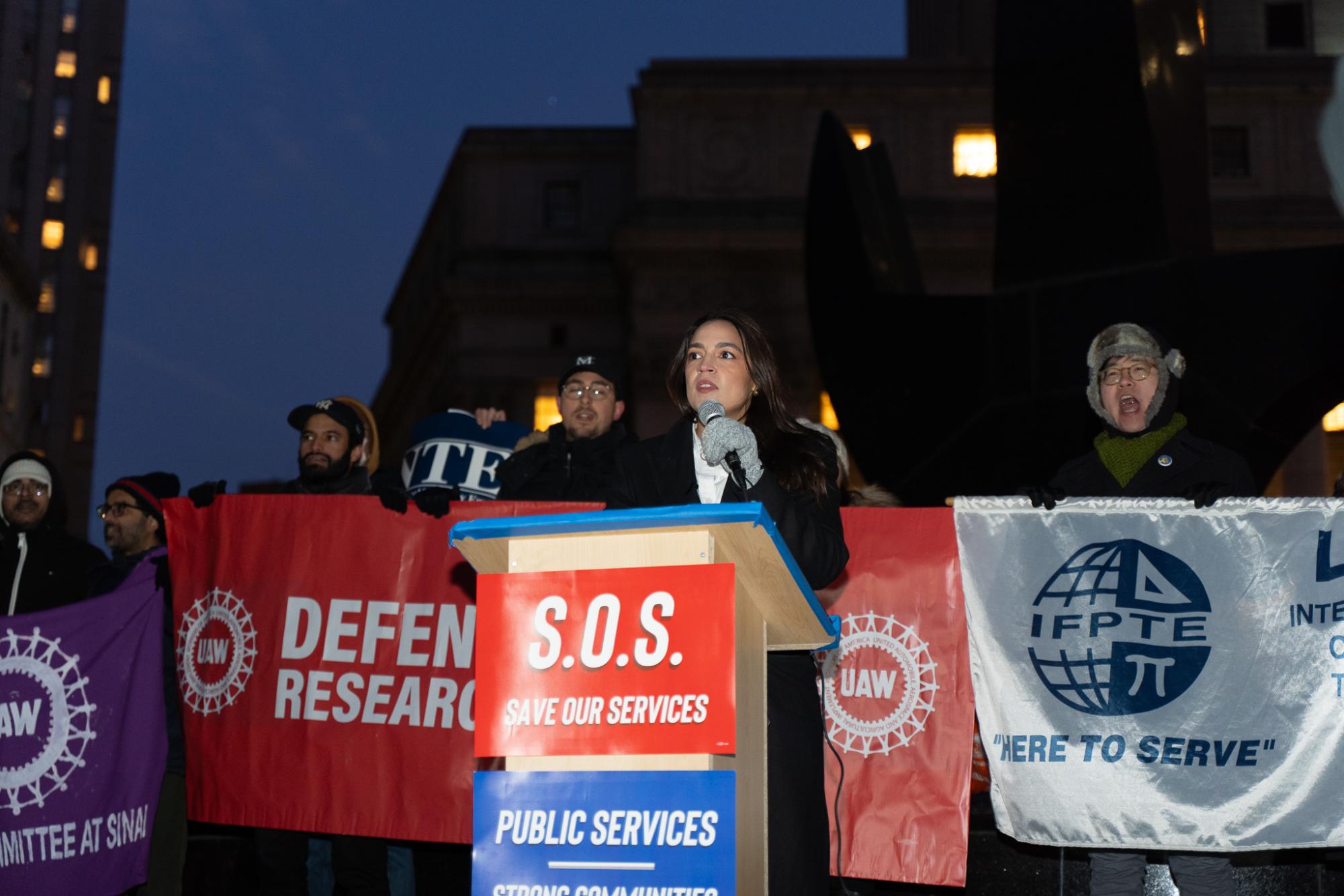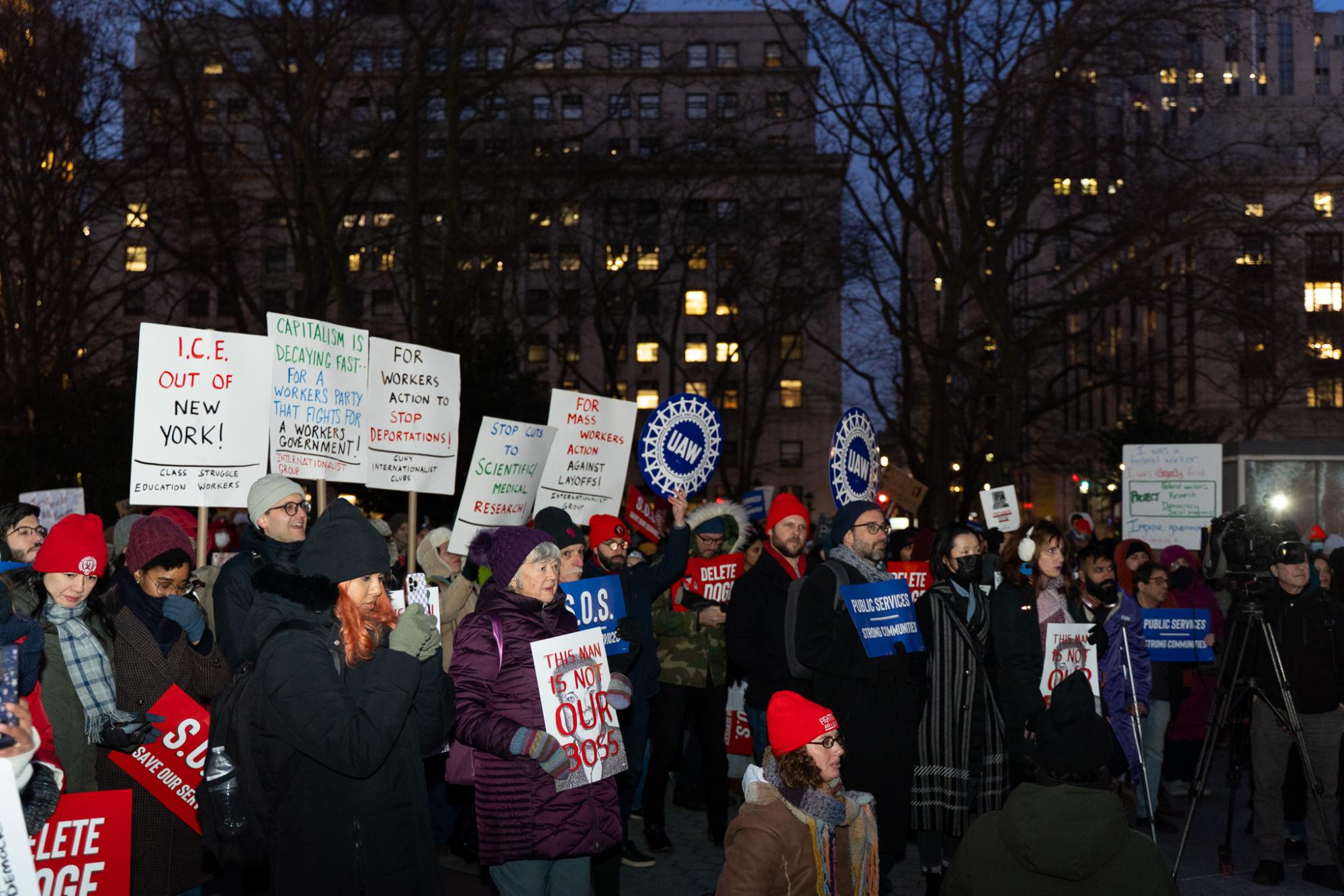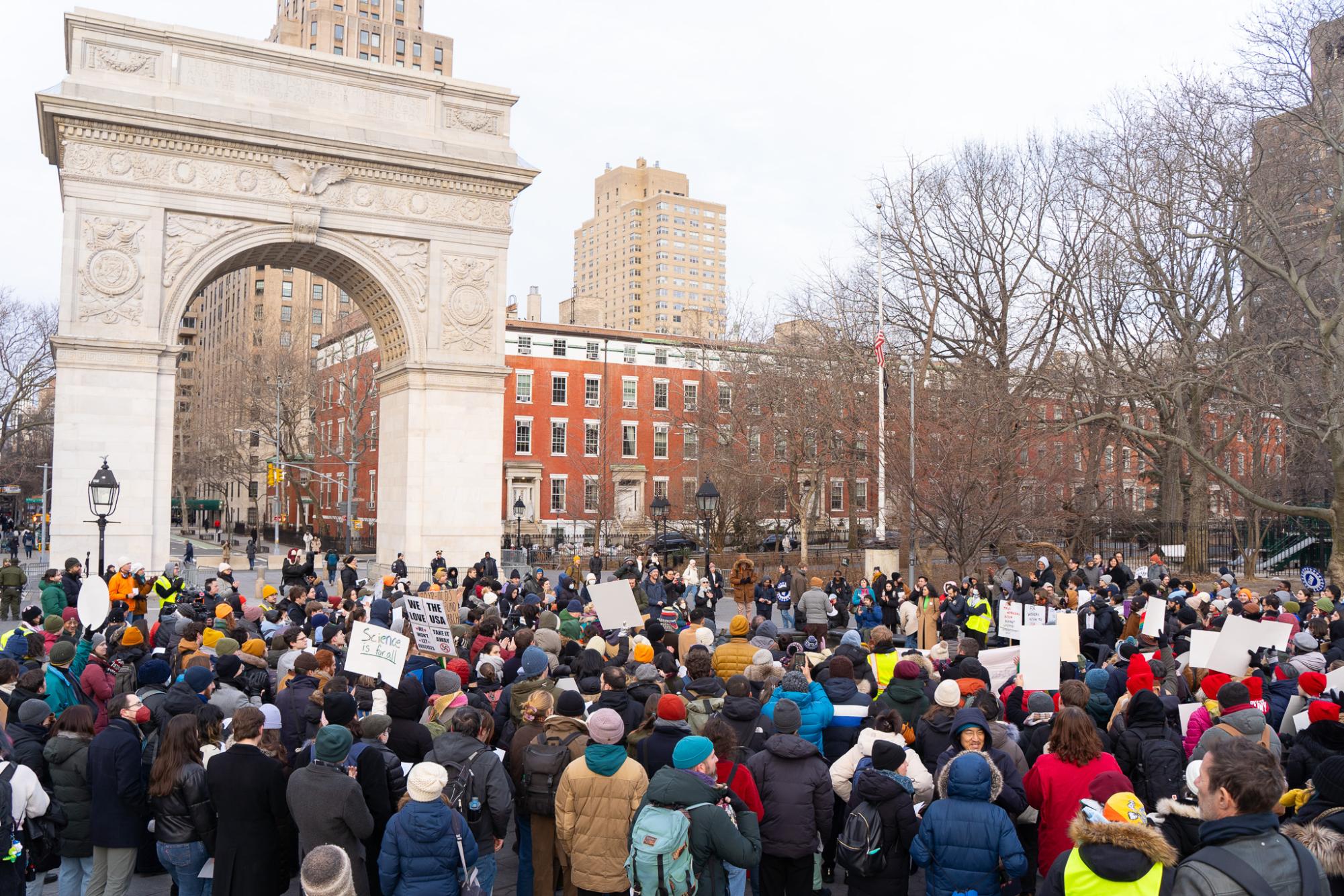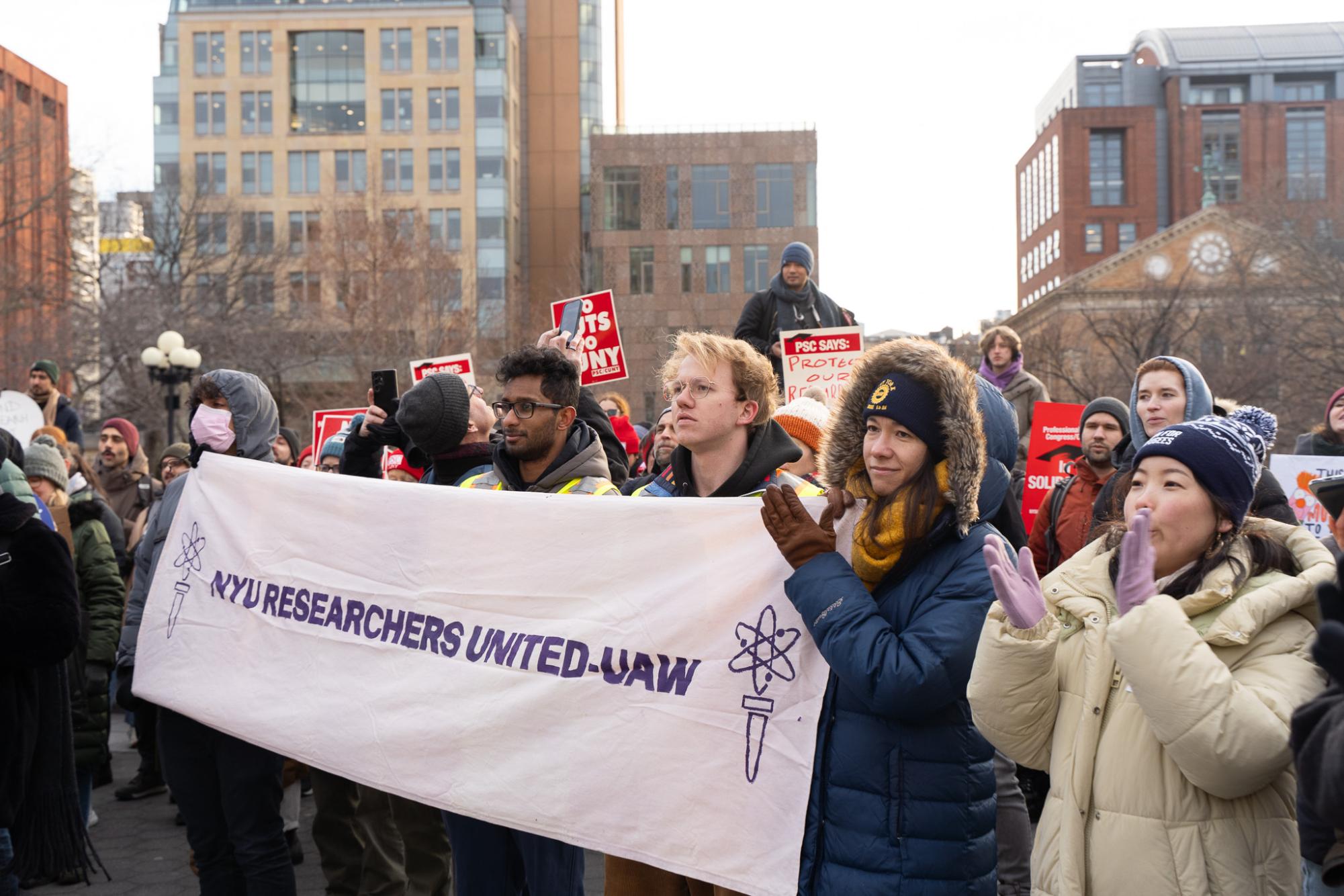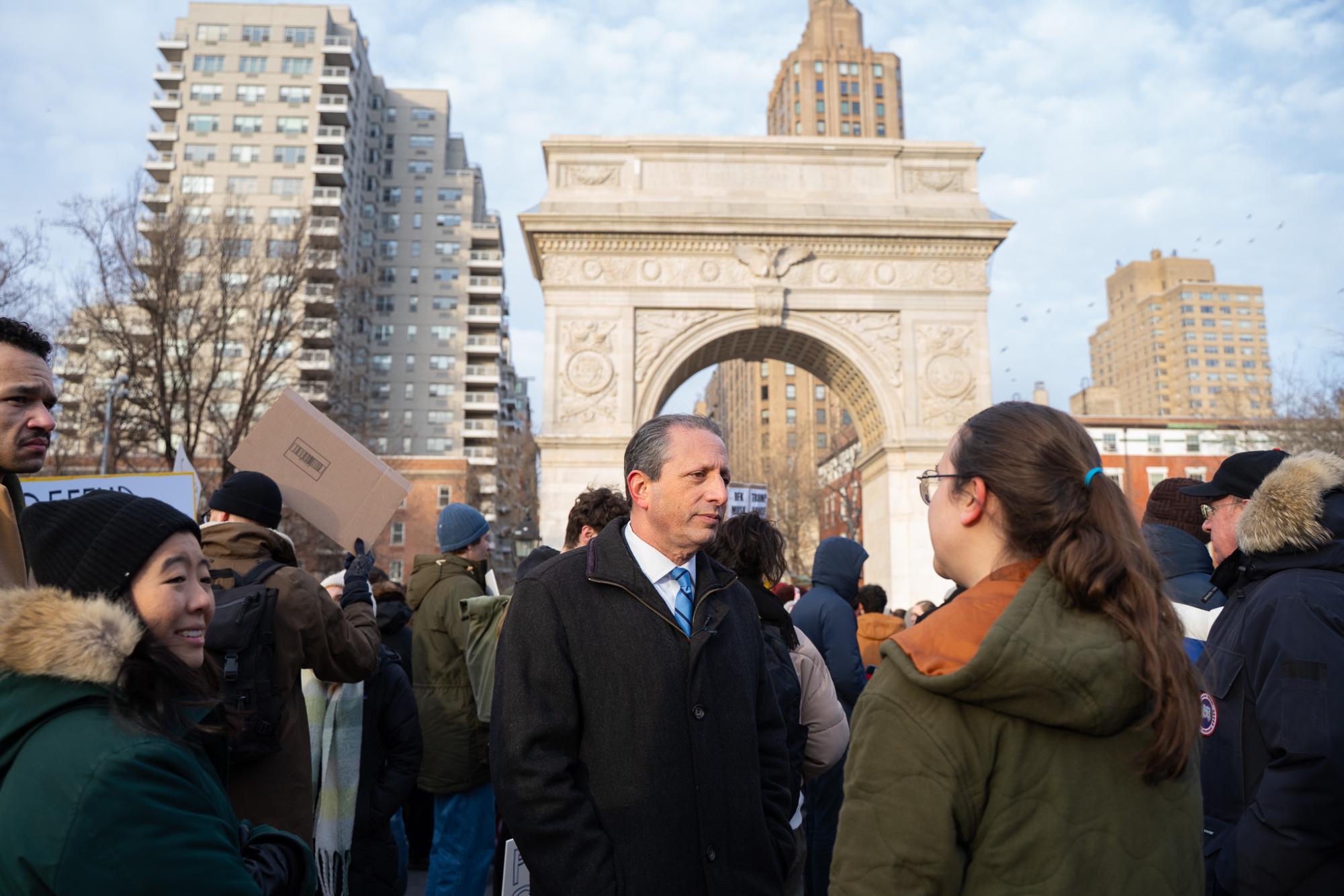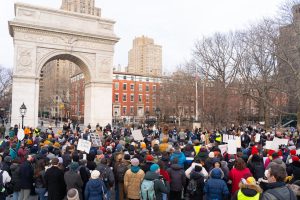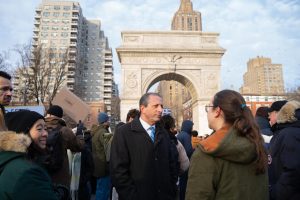More than 200 graduate students, faculty and federal workers gathered in Washington Square Park on Wednesday afternoon to protest President Donald Trump’s cuts to academic research funding.
The rally, organized by NYU’s graduate student union, began with speeches from researchers and politicians criticizing Trump’s orders to cut the National Institutes of Health’s research spending. The group then marched to City Hall for another rally against the president’s widespread firing of federal workers, where Congresswoman Alexandria Ocasio-Cortez called for continued protests against Trump’s dismantling of federal agencies and Elon Musk’s Department of Government Efficiency.
Speakers condemned Trump’s Feb. 7 15% cap on how much money the NIH can provide for institutions’ indirect costs, which cover staff salaries, staff health insurance and facility rental costs. The order is currently paused and facing three separate lawsuits filed by researchers, universities and higher education groups, with court proceedings set to begin Friday. During the Biden administration, NYU received around $600 million in federal research spending — more than $500 million of which was from the NIH.
“This is my livelihood — this is what I have gone to school for,” said Cecilia Resiner, an NYU graduate student and manager at a neuroscience lab. “If this is gone, it’s devastating.”
Speakers said that minimized funding will increase inequity in academia and risk lives by halting efforts to find medical treatments and other scientific advancements. The crowd held signs reading “SAVE LIVES” and “FUND DON’T FREEZE” and chanted phrases such as “Save the grants, give science a chance” and “Hey Musk, rich and rude, research is a public good.”
“When things they wreck lead to profound harm, Donald Trump will pay an electoral price,” New York City mayoral candidate Brad Lander said in an interview with WSN. “But it could be millions of deaths later.”
In a statement, NYU spokesperson John Beckman said the university is continuing to monitor federal policy changes and referenced a letter sent to faculty and researchers last week. He said that the President’s Office, the Provost’s Office and NYU’s Federal Relations Office are working with peer universities and higher education organizations to effectively respond to the policy.
“The university is committed to supporting our faculty’s scholarship and collaborative partnerships, which have broad impacts,” Beckman said.
Resiner said the proposed cap has left many things uncertain, and that her lab is unsure if they can continue to hire people and conduct experiments without trouble. Erin McGowan, a doctoral student at the Tandon School of Engineering, also said that many of her peer researchers are concerned that they have to take on more financial burden to compensate for a loss of federal funding.
“A lot of these annual grants only accept applications once a year, so we’re always keeping an eye out for new grants,” McGowan said. “But if something ends now, we might not be able to apply to something new for a few more months.”
For years, Trump has touted plans to axe federal research spending. A Jan. 28 executive order to freeze all federal aid terminated at least two grants at NYU before it was revoked, and a more recent order from the administration called to cut funding from all work specifically related to diversity, equity and inclusion measures.
As of last week, nearly 77,000 federal employees resigned, with Trump and DOGE showing no sign of slowing their dismantling of the workforce. William Kay, an employee at the federal government’s Center for Medicare and Medicaid Services, told WSN that Trump’s sweeping action to layoff probationary employees overlooks their capabilities and job performance.
“People are really scared,” Kay said. “They don’t know what’s going to happen, and I think people are worried about our ability to do our jobs.”
Contact Amanda Chen at [email protected].


























































































































































